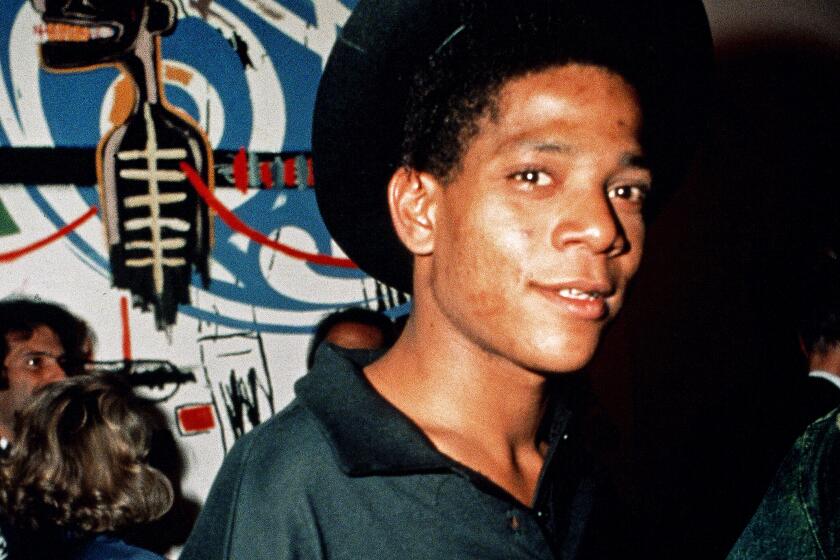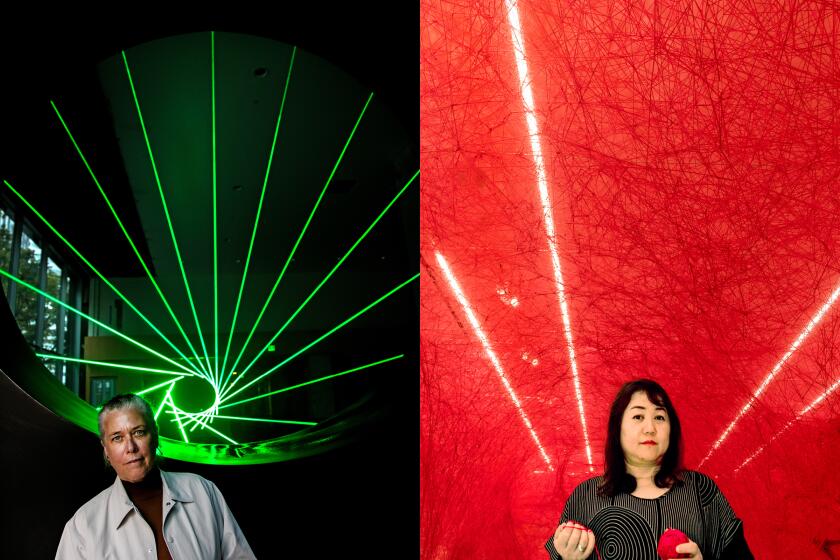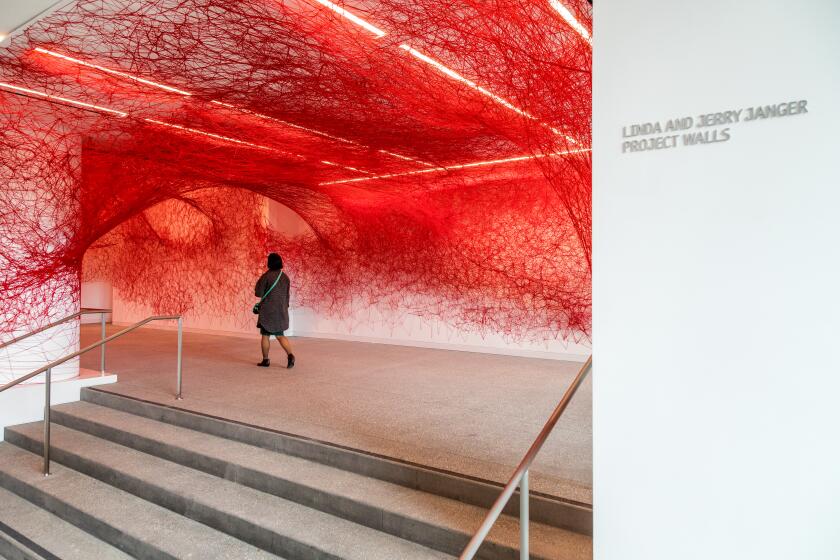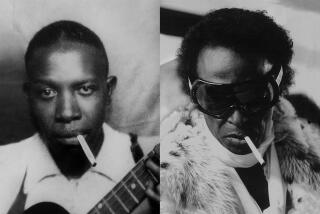Hammer biennial announces artist lineup and asks: ‘Why do we make art, who is it for?’
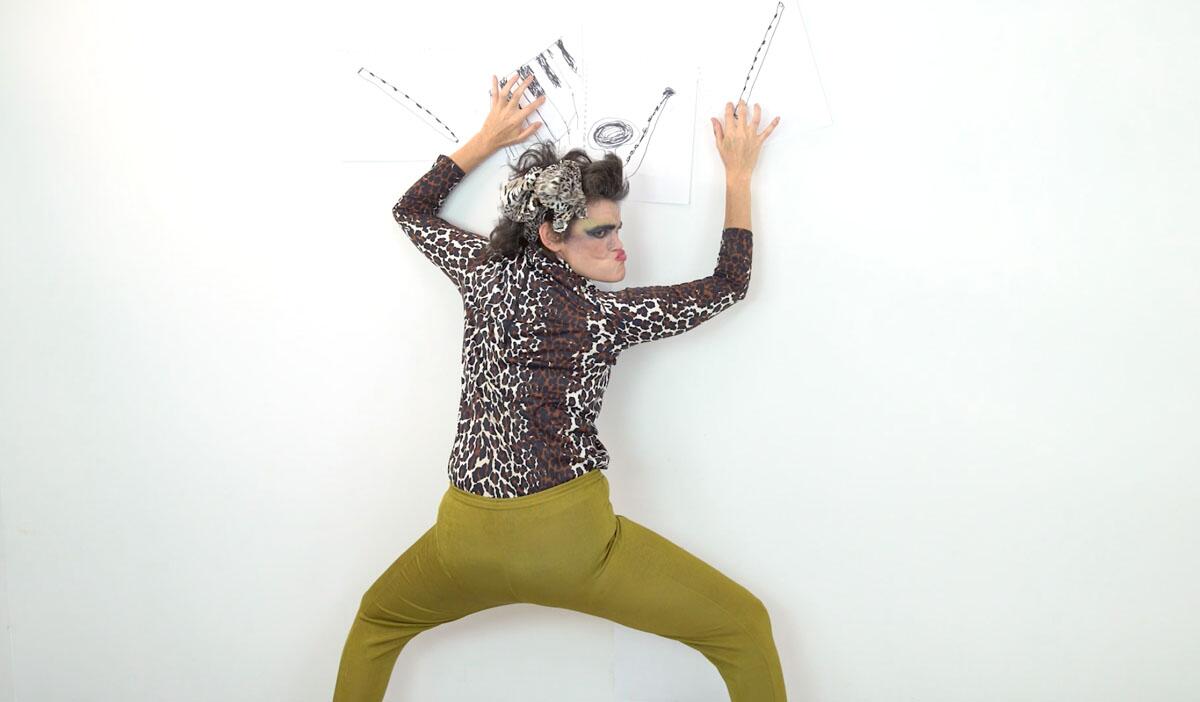
The Hammer Museum has announced the participant lineup for its next biennial, “Made in L.A. 2023: Acts of Living.”
The sixth iteration of the exhibition, spotlighting emerging and under-recognized artists from the Los Angeles area, will include 39 artists, arts collectives and organizations.
The multidisciplinary exhibition — which this year addresses how art, community and everyday life are entwined — was organized by L.A.-based independent curator Diana Nawi and Berlin and Amsterdam-based Pablo José Ramírez, a curator, art writer and cultural theorist. L.A.-based curatorial fellow Ashton Cooper served as assistant curator.
Jean-Michel Basquiat spent about a year and a half living in L.A, between 1982 and 1984. Here are some of his favorite haunts.
Throughout 2022, Nawi and Ramírez visited nearly 200 artist studios and exhibitions, scouring Greater L.A. for participants. They were struck not only by the diversity of works they saw — the materials, practices and subjects being addressed — but the vastly different reasons that propel artists to create.
A central question that emerged: “Why do people make art and who is it for?”
“It was 2022 and we were on the tail end of this acute COVID emergency,” Nawi says. “Art institutions had closed their doors, galleries closed their doors, we’d shifted in a major way to the spaces and ways in which people could receive and come together around art. It shifted the economy and laid bare the difficulty of committing to an artistic practice. We kept thinking: ‘What are the stakes for making art?’ Artists’ commitment to their practice shapes their lives and that was really moving.”
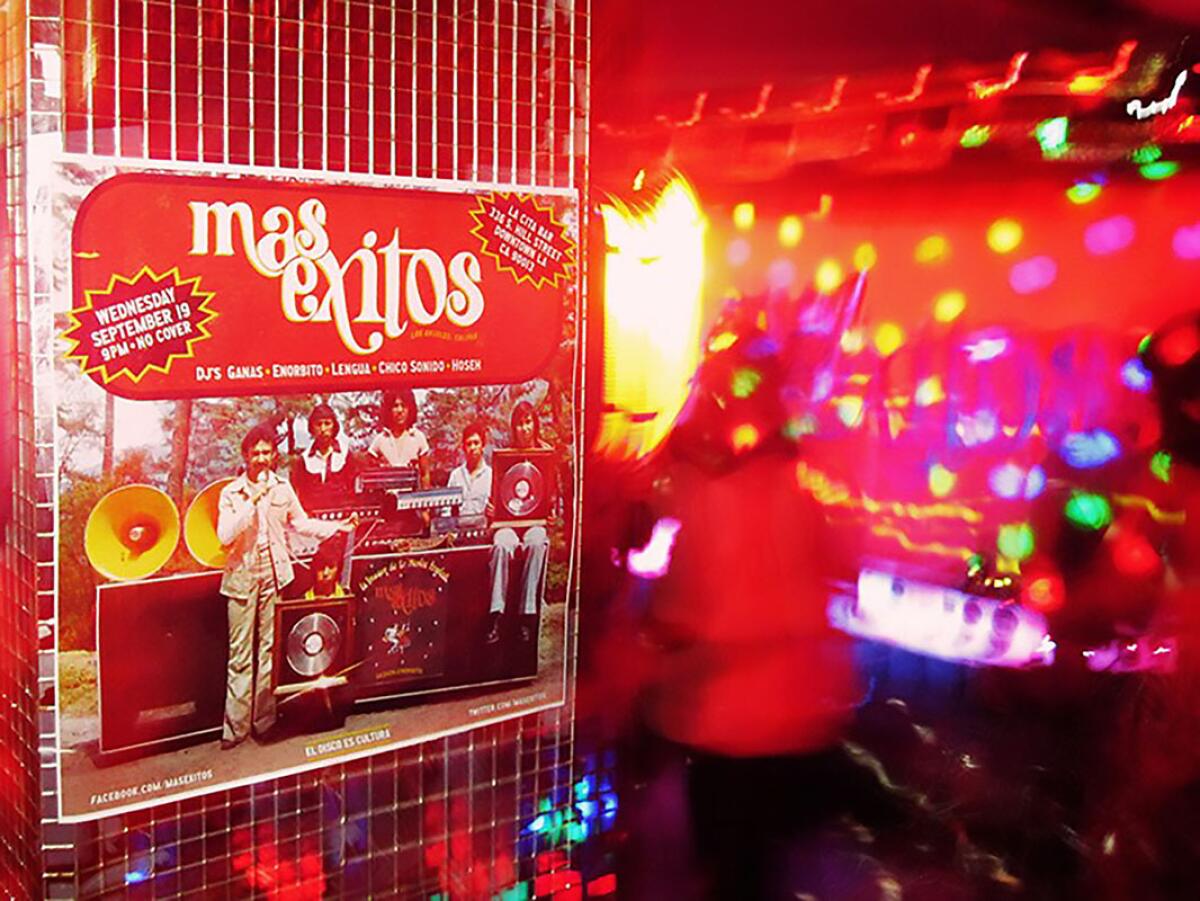
Work on view in the biennial will take the form of painting, drawing, sculpture, assemblage, ceramics, performance, music and installation, some of which includes multimedia. The exhibition is especially “object-heavy,” Nawi says.
The title of the exhibition comes from late artist Noah Purifoy. His quote appears on a plaque at Watts Towers in South L.A., a vital community space and hub for arts education. “One does not have to be a visual artist to utilize creative potential,” the plaque reads. “Creativity can be an act of living, a way of life and a formula for doing the right thing.”
Most of the participants created new work for the exhibition, while some artists are showing existing work. Several works in the biennial, new or not, speak to tradition and history, both the trajectory of an artist’s work over time and myriad cultural histories throughout Los Angeles.
The Hammer Museum is debuting large-scale immersive installations in its lobby and new gallery by artists Chiharu Shiota and Rita McBride to mark the completion of its new building project.
77-year-old assemblage artist Teresa Tolliver will show selections from a large body of work from 2003-05 called “Wild Things.” The works feature the same armature of a lion with found objects and the artist’s own ceramics and sculpted metal objects layered on top.
“They’re very powerful objects and it was interesting to see this kind of seriality — what it means to work in a particular language over time,” Nawi says. “The making, the hand, is so evident in the work.”
Guadalupe Rosales’ work in the biennial is concerned with preserving and documenting aspects of Southern California Chicano and Latinx culture. She’s creating an immersive installation that’s a sanctuary-like space featuring art objects made with materials from lowrider culture and club culture.
“Her practice is very rooted in the language and materiality of Los Angeles, particularly East L.A., and creating space in the museum for cultural preservation,” Nawi says.
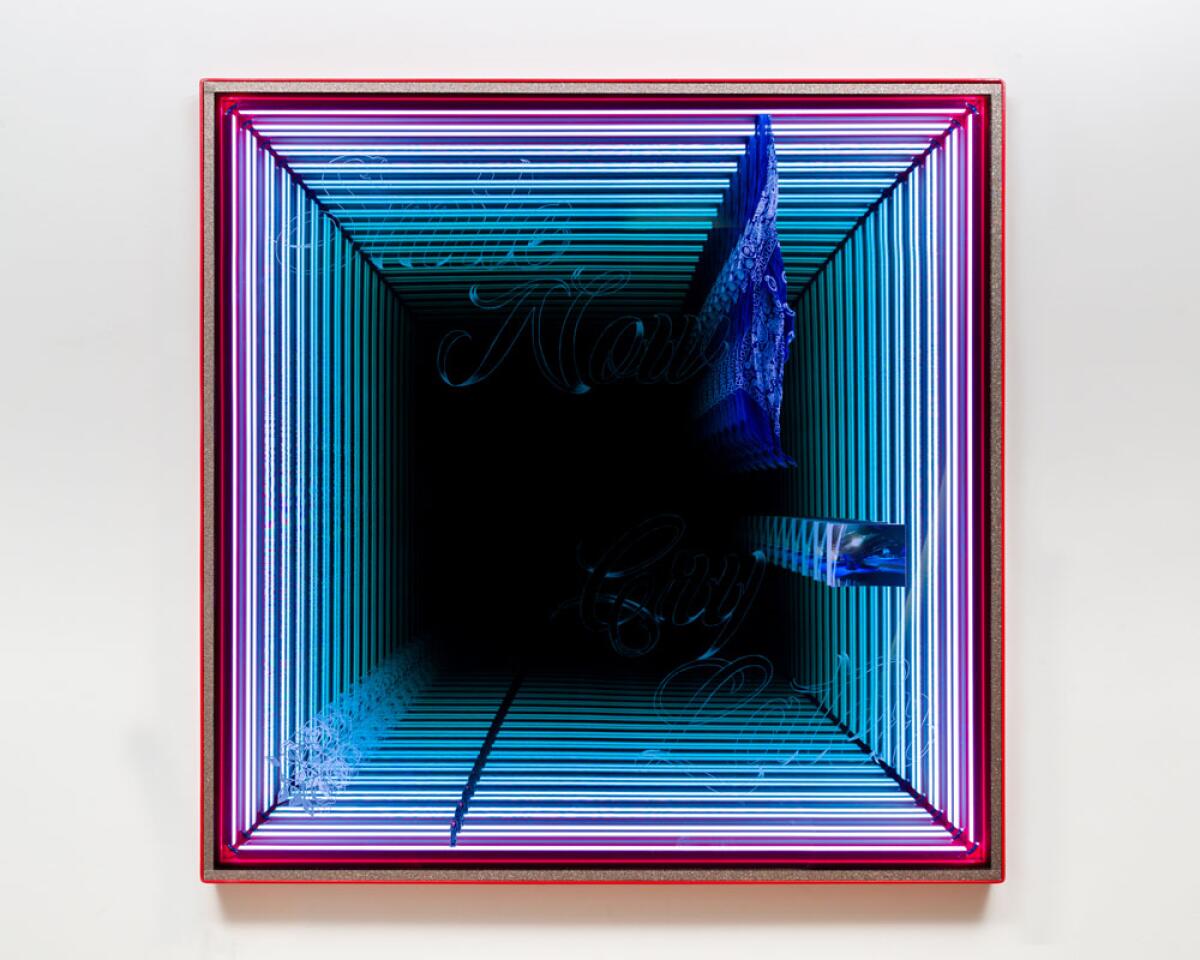
The ages of this year’s participants range from mid-20s to early 80s, facilitating an intergenerational dialogue, Nawi says. One of the artists was chosen posthumously.
Luis Bermudez, who died in 2021, worked across various techniques within ceramics while drawing on elements of topography and Mesoamerican iconography, as well as the history of the medium itself. “Made in L.A.” will present examples from four different bodies of his work. One piece, as Nawi describes it, is “a white ceramic throne bowl” with a snake coiled around the piece and an upright serpent holding it up. A group of 3-D wall sculptures together create a grid of cast objects, including self-portraits and animal heads, along with snakes and serpents.
“The works are a really inventive use of the medium; within a single piece you might see multiple building techniques and glazing techniques. Again, it speaks to seriality and repetition and dedication to the making of the object,” Nawi says.
Los Angeles Contemporary Archive (LACA), located in Chinatown, will address history directly. The public archive and library keeps a growing archive of materials, donated by artists and dating back to 2013, relating to contemporary artistic practice. That could be set pieces and costumes from performances, art studio leases, contracts, pay stubs, text messages, class syllabi and other artmaking materials. Its “Made in L.A.” project is still in development, but will include selections from the organization’s archive as well as related programming.
“It’s an amazing repository for a contemporary record of what it means to produce art and culture,” Nawi says.
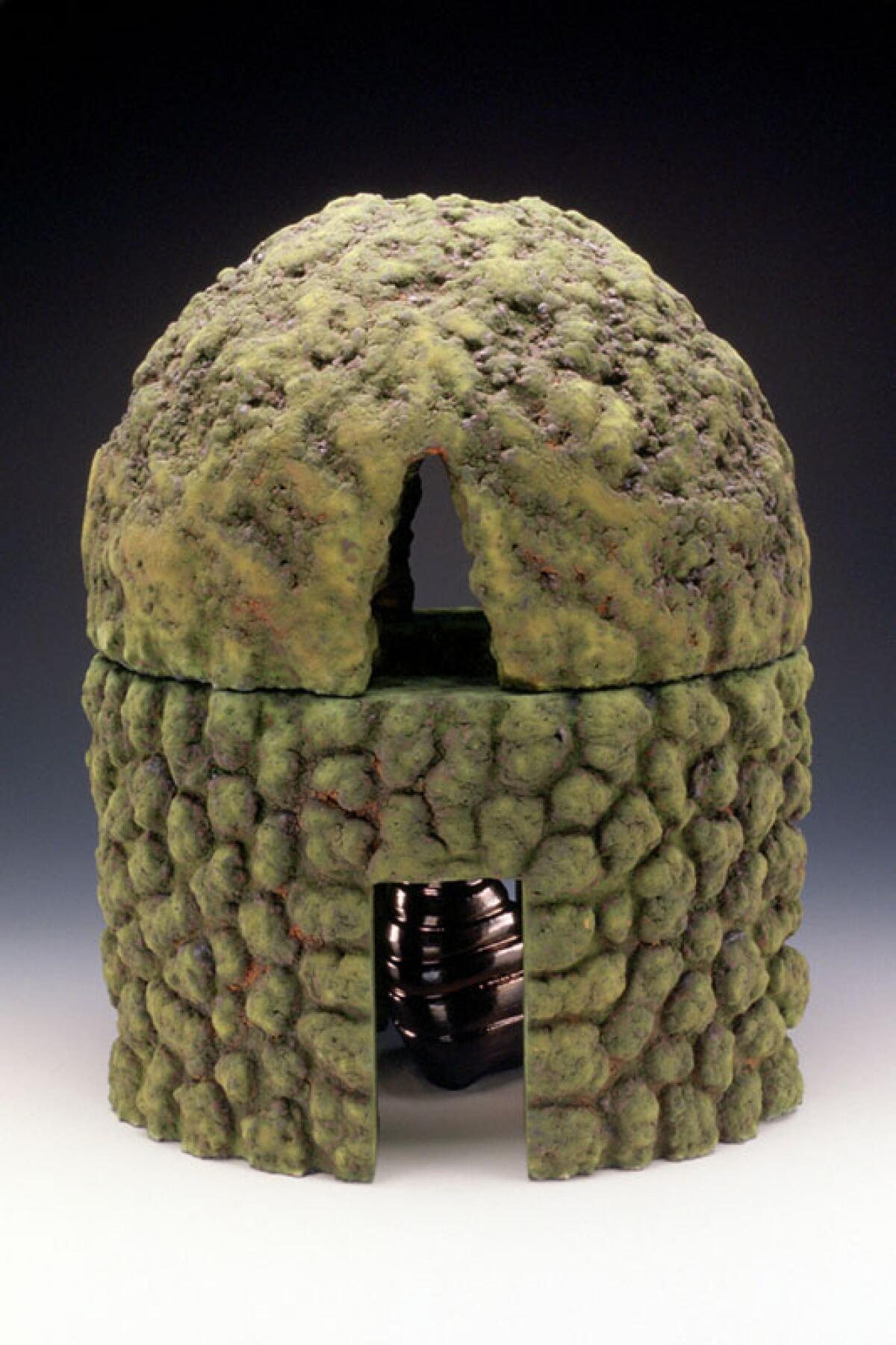
This year’s “Made in L.A” is especially anticipated, as the museum’s last biennial, “Made in L.A. 2020: a version,” sat shuttered for nearly a year because of the pandemic. Works were supposed to go on view at both the Hammer Museum in Westwood and the San Marino-based Huntington Library, Art Museum, and Botanical Gardens in June 2020. The exhibition eventually opened in April 2021.
Last month, the Hammer debuted the final phase of its two-decade-long expansion and renovation project, steered by Michael Maltzan. The renovation includes a 60% increase in exhibition space and a new entrance on the corner of Wilshire and Westwood boulevards.
The Hammer Museum revamp, which opens March 26, features new entrances, more gallery space, immersive installations, a sculpture terrace and more.
When the new Hammer Museum opened on March 26, one of the exhibitions on view was the largest presentation to date of its Hammer Contemporary Collection. The Hammer has been acquiring contemporary art since 2005, and much of it has come from local “Made in L.A.” artists. The first biennial, organized by the Hammer in collaboration with LAXART, debuted in 2012.
“Made in L.A. 2023: Acts of Living” is one of the most extensive Hammer biennials to date, in terms of the number of participants, curator Ramírez says.
“On the one hand, it’s a survey of the city so it’s about L.A.,” Ramírez says. “But L.A. is such a complex city, with so many layers — the history of it, how people interact with each other — so what we tried to do was make an exhibition that’s not just a survey but a curatorial project organized by constellations, groupings of artists. It speaks to what we believe is relevant in this moment, the zeitgeist in the city.”
“Made in L.A. 2023: Acts of Living” runs Oct. 1 through Dec. 31.
The full list of participants are: Marcel Alcalá, Michael Alvarez, AMBOS: Art Made Between Opposite Sides, Jackie Amézquita, Teresa Baker, Luis Bermudez, Sula Bermúdez-Silverman, Jibz Cameron, Melissa Cody, Emmanuel Louisnord Desir, Victor Estrada, Nancy Evans, Pippa Garner, Ishi Glinsky, Vincent Enrique Hernandez, Dan Herschlein, Jessie Homer French, Akinsanya Kambon, Kyle Kilty, Young Joon Kwak, Kang Seung Lee, Tidawhitney Lek, Los Angeles Contemporary Archive (LACA), Maria Maea, Erica Mahinay, Mas Exitos, Dominique Moody, Paige Jiyoung Moon, Esteban Ramón Pérez, Page Person, Roksana Pirouzmand, Ryan Preciado, Devin Reynolds, Miller Robinson, Guadalupe Rosales, Christopher Suarez, Joey Terrill, Chiffon Thomas, Teresa Tolliver.
More to Read
The biggest entertainment stories
Get our big stories about Hollywood, film, television, music, arts, culture and more right in your inbox as soon as they publish.
You may occasionally receive promotional content from the Los Angeles Times.
